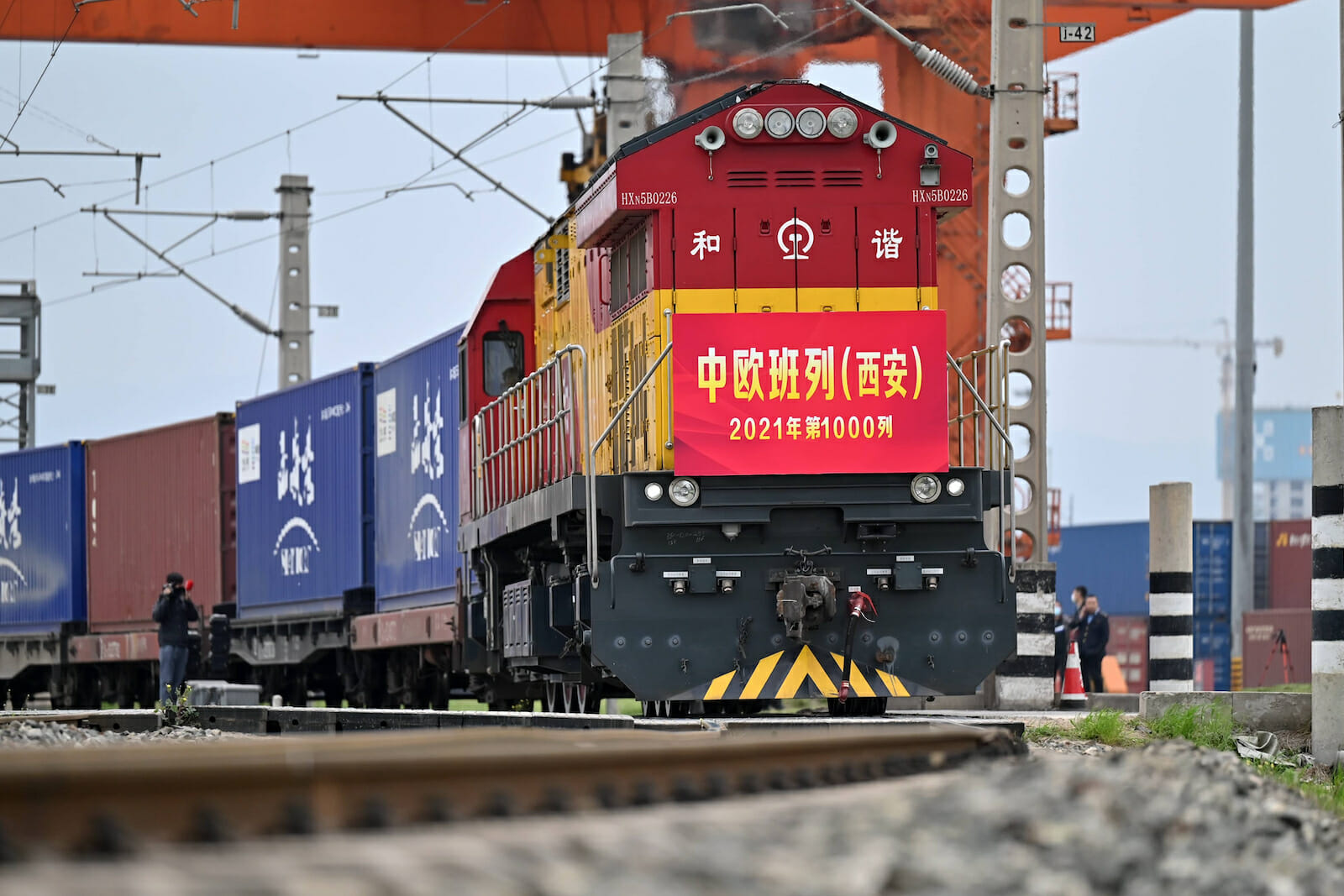
Anti-China Sentiment Challenges Sino-Kazakh Relationship
Kazakhstan is the biggest economy in Central Asia and it naturally plays a significant role in China’s Belt and Road Initiative.
Over the years, China has invested heavily in Kazakhstan. Kazakhstan serves as an essential transition point between China and Europe, a key project of the BRI. According to the Kazakhstan state-owned railway company, 4,800 Europe bound Chinese freight trains traveled through Kazakhstan in 2020.
Economically, China is Kazakhstan’s biggest investor and one of its biggest trading partners. China has expressed interest in Kazakhstan’s natural resources. China is also involved in the development of Kazakh oil and natural gas industries. The China National Petroleum Corporation (CNPC), for example, has been investing in the oil and natural resources in Kazakhstan. The company has invested more than $40 billion in the nation. The China-Kazakhstan pipeline transfers 20 million tons of oil to China, and the CNPC is the only buyer.
During the pandemic, China has also provided support to Kazakhstan. At the beginning of the pandemic, CNPC provided ventilation machines to local hospitals. Recently, China has also provided COVID vaccines to Kazakhstan. Three million doses of the Sinovac vaccine arrived in late March.
All of these indicate Chinese interest in Kazakhstan and the importance of Kazakhstan on the BRI. However, while the Chinese government and Chinese companies keep pushing for the development of the BRI, the relationship between China and Kazakhstan local communities is not always smooth. In recent years, tensions among the local people towards China have been on the rise.
This March, anti-China sentiment rose even more in Kazakhstan. On March 27, there was a protest in Almaty and in other major Kazakh cities directly targeting Chinese influence and economic expansion. A few hundred people attended a protest in Almaty, and 20 protesters were arrested during the protest. The reason behind the protest was about a new law concerning land use. Kazakh law forbids foreign entities from purchasing land but allows foreign entities to rent agricultural land. The fear is that any land that is rented could ultimately be purchased. Some even believe that this is part of China’s scheme of “expanding” into Kazakhstan. The protesters also targeted China’s treatment of its ethnic minorities.
However, these anti-China protests are not new to Kazakhstan. The concerns over land started in 2016. Back then, Kazakhstan only temporarily froze the selling of agricultural land, which created tension and concerns domestically. Recently, the Kazakhstan legislature has approved an amendment to forbid foreign entities from purchasing or renting agricultural land in Kazakhstan. Protests also broke out in 2019 over China’s expanding role in Kazakhstan with dozens arrested in Almaty and Nur-Sultan.
Kazakhstan is a multiethnic nation with more than 130 ethnic groups. The country maintains a relative harmony between ethnic groups. However, last year, Kazakhstan had one of the most severe ethnic clashes since its independence in the south.
The clash happened southwest of Almaty, in early 2020. A small number of Kazakhs started to attack the Dungan people, an ethnic minority that originated from China and moved into modern-day Kazakhstan during the late 19th century. Seven people died during the clashes, while many more Dungan people crossed the Kazakh-Kyrgyz border to seek safety. Socioeconomic inequality has led to protests and bloodshed. With the development of BRI, the Dungan people have become the bridge between Kazakhstan and China. The Dungan people became more well-off as a result of China-Kazakhstan trading. This rise in socioeconomic status has created tension between the Dungan people and Kazakhs.
Kazakhstan’s anti-China sentiment is not isolated. When China expanded its international economic and political influences in Central Asia, local communities raised concerns and even protested Chinese expansion in the region. Protests have also taken place in Uzbekistan and Kyrgyzstan targeting Chinese economic and political influence.
While the Chinese government has clearly stated that these protests are only “malicious hyping of a handful few,” they pose a challenge for Beijing as it promotes the BRI in Central Asia. The Chinese are beyond capable of maintaining a good relationship with local governments and businesses. Yet, it is equally critical to maintain a healthy connection with local communities. To achieve success, China has to think about how to manage relationships with local communities. In 2019, many of the protesters in Kazakhstan expressed concerns that Chinese factories will not bring jobs to local communities. Those are legit concerns that Chinese companies investing in Kazakhstan must understand and pledge to address.
